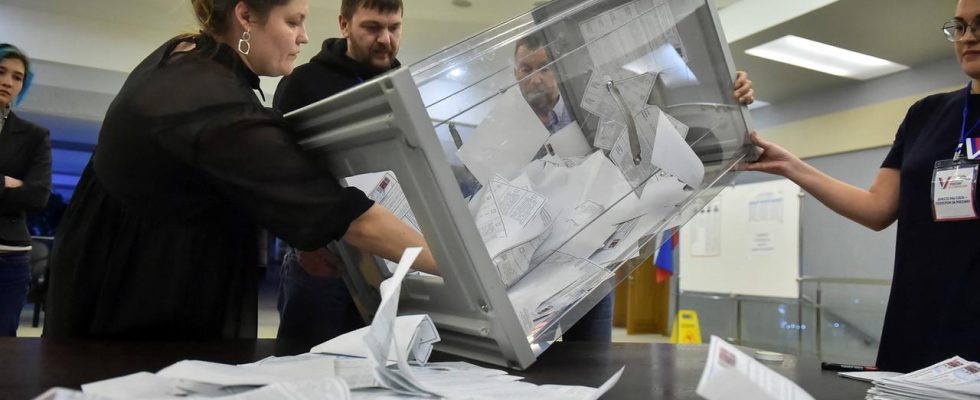It is not surprising: Russian President Putin remains in office. According to initial counts, the electoral commission sees him with a good 87 percent of the votes. The three-day election was considered neither free nor fair.
In Russia, President Vladimir Putin is about to run for a fifth term. As the electoral commission announced on state television, according to initial counts, he received a good 87 percent of the votes. There should be more meaningful results on Monday.
It would be a record for Putin, who received 76.7 percent of the vote in 2018. He is likely to present such a result as confirmation of his anti-Western and authoritarian course. Observers expect that with this support, which critics say is partly due to repression and coercion, he will not only significantly increase his foreign policy in his war of aggression against Ukraine over the next six years in office. Many Russians also fear a new mobilization of hundreds of thousands of reservists.
Domestically, the approach could also become much tougher in order to stifle the protests from Putin’s opponents that were visible on the three election days. Tax increases have also been announced to finance the high expenditure on the war and social policy projects.
voter turnout should be more than 70 percent
The electoral commission reported voter turnout at more than 70 percent, the highest ever in a Russian presidential election. This should give the result additional legitimacy. The number of eligible voters was given as 114 million people.
Independent observers pointed to systematic fraud behind this high value for Putin. Since the first day of voting on Friday, a large number of cases have been documented in which employees of state-owned companies were pressured to vote and in some cases even had to take photos as evidence of their completed voting slip. Critics also complained that the online process in particular was easy to manipulate. Observers also documented the mass stuffing of pre-filled ballot papers into the ballot boxes.
It is also criticized that no real opposition candidates were allowed. The authorities took very harsh action against opposition members, independent media and human rights groups. Putin’s greatest opponent, Alexei Navalny, died in a penal camp in the Arctic in mid-February under unclear circumstances. Other critics are either in exile or in prison.
Protest actions by Putin opponents
The vote was accompanied by various protests, despite attempts at intimidation by the authorities. Today, for example, people in many cities gathered in front of their respective polling stations around 12 p.m. local time for the “Lunch Against Putin” campaign, which the opposition around Navalny had called for.
Navalny’s widow, Yulia Navalnaya, took part in the election at the Russian embassy in Berlin. She said afterwards that she wrote her husband’s name on the ballot paper.
There were also protests on the other election days: In several places, voters poured paint into urns, threw Molotov cocktails or otherwise started small fires.
Report: No congratulations from Steinmeier
There was also sharp international criticism of the vote. The White House in the US capital Washington said the election was “obviously neither fair nor free.” The Polish Foreign Ministry described them as “not legal”. The election was held “under severe repression” and in occupied parts of Ukraine in violation of international law. Ukrainian President Volodymyr Zelensky denied Putin “any legitimacy.” “It is clear to everyone in the world that this character, as so often in history, is simply obsessed with power and will do anything to rule for life.”
According to a report, Federal President Frank-Walter Steinmeier does not want to congratulate the Russian President on his further term in office as usual. “There will be no letter to Putin,” said Steinmeier’s spokeswoman at the request of the Berliner Tagesspiegel. Steinmeier had previously released a statement in which he said that on election day he was thinking “of the people in Russia who are fighting for freedom and democracy and who live in constant danger from Putin’s regime.”
Putin has ruled Russia since 1999, including a term as prime minister. After a constitutional change confirmed in 2020, Putin could run again in 2030 for another six years.

